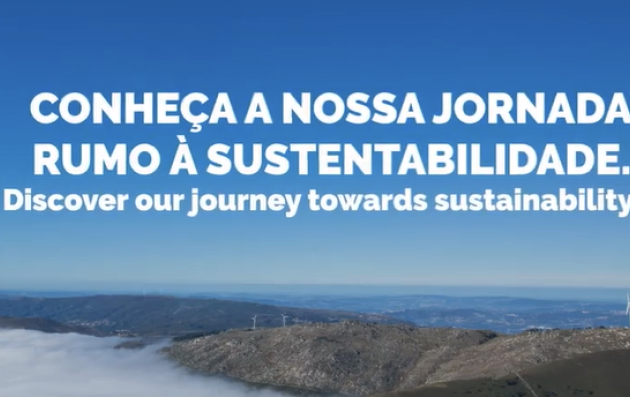Summary
The practice involves a certification system for sustainable tourism in Baião (PT). It reflects the city’s commitment to developing high-quality responsible tourism, which leverages its rich natural and cultural heritage to boost the local economy, while ensuring environmental protection and social inclusion. Baião’s Action Plan (2020-2030) emphasises the efficient use of energy and water resources, along with the implementation of renewable energy solutions, and the protection of biodiversity and natural ecosystems. Baião promotes its unique heritage and fosters community engagement with cultural events and festivals.
The solutions offered by the Good Practice
Baião, in northern Portugal, has successfully integrated sustainable tourism into its strategic development framework, becoming the first Portuguese municipality to achieve EarthCheck certification. This initiative prioritises environmental conservation, cultural preservation, social inclusion, economic growth, and sustainability.
Important milestones:
- Formation of a “Green Team” responsible for implementing the Destination Sustainability Policy, managing the EarthCheck Benchmarking Programme, and executing an Action Plan.
- Achieving the EarthCheck Silver certification.
- Development and implementation of the Sustainability Policy, encompassing the four pillars of sustainability (Environmental, Cultural, Social and Economic).
- Benchmarking assessment of the destination and its performance in relation to the 12 key areas of the EarthCheck standards.
The primary needs addressed include protection of natural resources and biodiversity, sustainable economic growth through tourism, inclusive growth that benefits the entire community, and the preservation of local traditions and historical sites.
The model addresses immediate sustainability needs, and sets a foundation for long-term resilience and prosperity.
Building on the sustainable and integrated urban approach
Baião’s sustainable tourism solutions integrate the multiple dimensions of development.
Environmental: Sustainability is achieved through energy-efficient and renewable energy projects, efficient water management, and waste management systems, all of which help protect biodiversity and natural habitats.
Economic: Growth is driven by responsible tourism that increases revenue, supports local businesses and artisans, and creates jobs. The municipality’s fair trade practices ensure that economic benefits are fairly distributed.
Social: There is a strong emphasis on community participation, and engaging residents in the planning and implementation of sustainability initiatives. Educational programmes promote awareness and actions among residents, particularly in schools and youth groups.
Cultural: Culture is actively promoted through events, festivals, and the maintenance of historical sites, fostering a sense of pride and identity, while attracting tourists.
The “Green Team” ensures alignment with broader sustainability goals, fostering synergy between environmental conservation, economic growth, and social inclusion.
Based on participatory approach
The Sustainable Tourism Destination project involves multiple actors:
EarthCheck: A world-leading organisation in scientific benchmarking, certification and consultancy for travel and tourism.
“Green Team”: A multidisciplinary team made up of representatives of the city authority, local and inter-municipal entities, and the private sector. It was set up to conduct the certification process, and to ensure all activities meet the criteria of EarthCheck and of the Global Sustainable Tourism Council. They regularly consult with the community to incorporate their feedback and ensure transparency.
Local businesses and artisans: Benefit from fair trade practices and opportunities created by sustainable tourism.
The municipality: Organises markets and events to promote local products, enhancing economic resilience and supporting local livelihoods.
Educational institutions: Schools and youth groups participate in environmental education programmes, which raise awareness and foster a culture of sustainability among the younger generation.
What difference has it made?
Thanks to local tour operators and Baião’s tourism development strategy:
- The number of overnight stays has steadily increased, rising from 36 974 in 2015 to 76 428 in 2022.
- Accomodation revenues have followed a similar trend, with an increase of 138% between 2015 and 2021.
- Local businesses, especially in hospitality, food, and crafts, have benefited from increased tourism, leading to job creation and economic diversification.
- The promotion of local products through events and markets has further supported local artisans and farmers, enhancing the local economy's resilience.
In 2023, Baião underwent an audit by EarthCheck, which revalidated its “Silver” certification as a Sustainable Tourist Destination since 2021.
As an example (2022), Energy Consumption (GJ / Person Year) was 29,8% better than the Best Practice level; and Habitat Conservation Area was 30,5% better than the Best Practice level.
Why this Good Practice should be transferred to other cities
Baião's sustainable tourism practice is widely relevant for other cities due to its holistic approach, integrating environmental, social, cultural, and economic sustainability.
It aligns with:
- Sustainable Development Goals (SDGs): SDG 7 (Affordable and clean energy), SDG 11 (Sustainable cities and communities), SDG 12 (Responsible consumption and production) and SDG 13 (Climate action).
- The Urban Agenda for the EU ("Jobs and Skills in the Local Economy", "Circular Economy", and "Energy Transition" goals).
The practice helps connect rural and urban areas, enhances resilience, and ensures sustainable urban development. It aligns local initiatives with broader EU and global sustainability frameworks, which supports its adaptability in other European contexts.
Sustainable Tourism Destination supports national governance and legislative frameworks, including Portugal’s national strategies for sustainable development, environmental protection laws, and policies promoting renewable energy and waste management. This also facilitates its transfer to other cities.
Baião's sustainable tourism practice can be amended to suit other city contexts. The core principles - environmental conservation, cultural preservation, social inclusion, and economic development - are adaptable. Other urban areas might focus on energy efficiency in housing, for example, while rural areas emphasise biodiversity.
Transfer requires:
- Commitment from local authorities to prioritise sustainability.
- Active involvement of residents, businesses, and local organisations to ensure buy-in and participation.
- Adaptation of core principles to address specific local challenges and opportunities.
- Compliance with national and regional sustainability policies and frameworks.
- Funding and resources for sustainability initiatives.
The practice has been shared through the city’s website and various platforms, including conferences, workshops, and publications.

